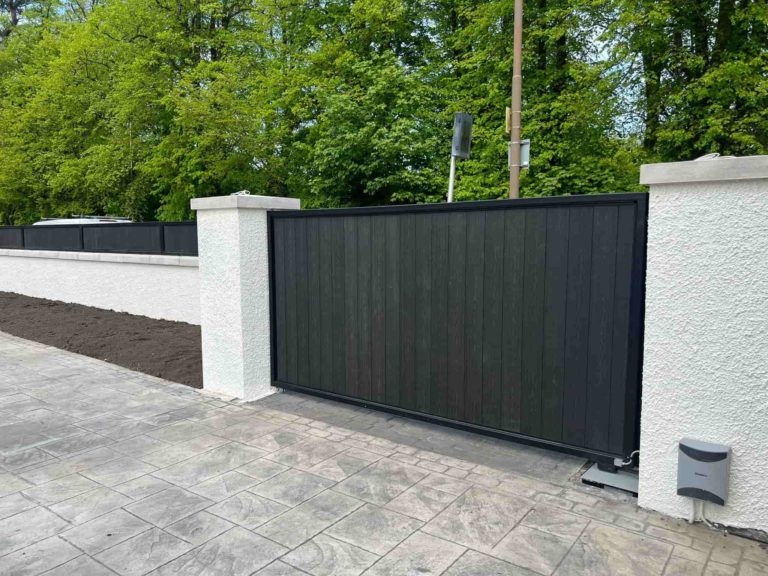
How much is a Automatic Gate ?
When it comes to automatic gates, there are plenty of choices for buyers, which means the cost can vary significantly. Whether you go for a wood or metal gate, plain or decorative, swing or sliding, or even bifold gates, there are numerous options available. Additional features like intercom systems and lighting can further customise the gate to suit your individual preferences. Typically, prices range from £1,500 to over £5,000 for standard models, with more complex or customised gates potentially costing more. In addition to the initial gate cost, don’t forget to bear in mind expenses for delivery and installation, which can be around £2,000 to £3,000.
While there is an initial investment, the benefits to your property’s security, convenience, and curb appeal can easily make an automated gate a worthwhile addition to your home.
Are automated gates worth it?
To decide whether or not an automated gate is right for you, it’s important to weigh several factors. While the initial cost and upkeep might be higher, the convenience they offer is undeniable. Imagine rolling into your driveway without ever leaving your car, especially during bad weather. Plus, automated gates enhance your property’s curb appeal, deter unwanted access, and create a safer environment for both your family and pets. If these factors align with your priorities, then automated gates might be an excellent investment for your peace of mind.
Are electric gates expensive to run?
Electric gates are generally not expensive to run, thanks to their low power consumption. Their active time is typically very short, perhaps around 30 seconds per cycle, which helps keep energy costs down. Additionally, the standby power usage is minimal. However, several factors can influence the overall running costs, including the size and weight of the gate, as well as the frequency of its use. But while there may be some variations depending on these factors, electric gates tend to be efficient and cost-effective in terms of ongoing expenses.
How much power does an automated gate consume?
The power consumption of an automated gate typically varies depending on its active cycle and standby mode. During its active cycle, an electric uses around 700 watts, which is about the same as a standard personal computer. In standby mode, the gate consumes approximately 100 watts, similar to the energy consumption of a TV or microwave on standby.
Do electric gates add value to a property?
Electric gates have the potential to add significant value to a property for several reasons. They enhance curb appeal, often come with off-street parking, and enhance safety and security by restricting access to the property. The convenience of being able to open and close the gate with the push of a button or remotely via a smartphone app is another attractive feature that adds value to the property. When it comes to ROI, it’s important to take into account certain factors such as the target market, property type, and location. In upscale neighbourhoods or high-end properties, electric gates may be considered essential or highly desirable. On the other hand, in more modest neighbourhoods or properties, the added value may be less pronounced.
How long do automated gates last?
The lifespan of automated gates typically ranges from 15 to 20 years, although this can vary based on several factors. The durability of the gate largely depends on the quality of materials used, the type of gate, and the overall system quality. Opting for reputable brands and ensuring expert installation can contribute to a longer lifespan by ensuring that the gate is built to withstand wear and tear over time. Regular maintenance is also essential for prolonging the lifespan of automated gates. This includes lubricating moving parts, checking electrical components, and addressing any issues promptly to prevent further damage. By investing in high-quality materials, professional installation, and ongoing maintenance, property owners can maximize the longevity of their automated gates, ultimately ensuring years of reliable operation.